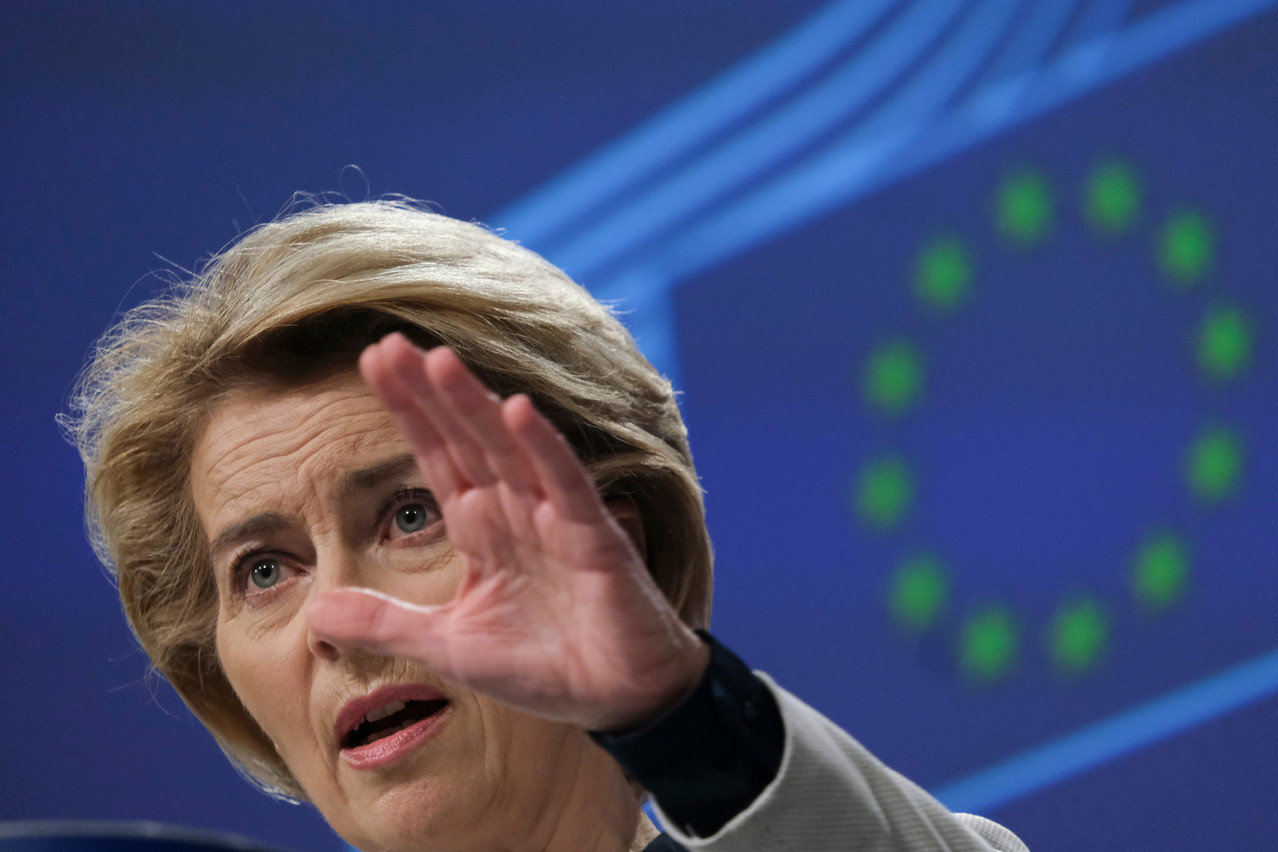With companies and households in Europe struggling with rising energy bills, the visible impact of climate change on European landscapes and the ongoing Russian war in Ukraine, the president has had many topics to cover during her annual speech.
But, for von der Leyen, this past year--when the world was recovering from the global pandemic--showed a European Union that was “united” and “determined”. However, she acknowledged that “we will need this strength as the moments ahead of us will not be easy.”
In general, stronger relations within the EU, with other global democracies and with EU accession candidates is the priority for the upcoming term.
Ukraine to receive €100m for schools
Von der Leyen--in the presence of her guest of honour Olena Zelenska, wife of president Zelensky--listed some of the EU’s efforts to respond to the war in Ukraine that started in February. “Putin will fail and Ukraine and Europe will prevail,” she promised, adding that the “tough sanctions” are “here to stay.” These had, so far, resulted in over 1,000 international companies leaving Russia, as well as ¾ of Russia’s banking sector being cut off from international markets, the president stated.
Among the many plans the EU has for the upcoming term is further help for Ukraine. The union has already provided €19bn in financial assistance--adding to military support--and plans on supplying an additional €100m to the country to help it rebuild educational infrastructures damaged by the war.
On top of this, the country should be added to the EU free roaming area. Von der Leyen will also postulate for the EU to add Ukraine to its single market.
Plans for cap on energy profits, EU bank of hydrogen
The EU’s dependency on Russian gas, the war in Ukraine itself and climate change have all impacted the prices of energy in the union. “We have to get rid of this dependency,” said von der Leyen. She explained that while the EU had overreached its gas storage target (84%), partnerships with reliable suppliers of energy had to be pushed.
As such, the EU wants to launch a task force responsible for determining which countries are reliable, while ensuring global competitiveness.
In the short term, the EU commission has joined calls for a proposed cap on revenues for companies that produce energy at a low-cost. While profits are good, “it is wrong to receive profits” at a time of war and at the expense of consumers, von der Leyen said.
The electricity market will also need to be reshaped, as “it is not fit for purpose anymore and not for consumers anymore”. While the switch to renewable energies has already begun with wind farms off EU coastlines and solar panels factories, more has to be done to turn hydrogen into a mass market.
The EU will thus create a new EU bank of hydrogen to help guarantee the purchase of hydrogen by using innovation fund resources. €3bn will be invested to help the future hydrogen market.
Keeping an eye on the future
Looking at the evolution of demand and access to raw materials, von der Leyen also pushed for partnerships and an involvement in various parts of the supply chain, to avoid repeating the same mistakes as the EU did with fossil fuels. Von der Leyen announced plans for a European critical raw material act, to secure the future of the EU’s industry.
But the EU has to move forward in the right direction and has to do so with sustainability in mind. Von der Leyen highlighted the impact of climate change on households, the environment, and local industries during the summer of 2022, where droughts and fires ravaged the union. As such, the EU needs to invest “in sustainability and sustainably,” she said.
With the future of children in mind, the president also said it was time to “enshrine the solidarity between generations in our treaties”.
Von der Leyen also put forward a relief package for SMEs called “BeFit” and called for a better procedure in the recognition of non-EU diplomas to counter the EU’s workforce shortage.
Lastly, the EU needs to work with other democracies around the world more closely, and “not lose sight of the way autocrats are undermining democracies in the EU.”
Ultimately, the EU has to become braver, bolder and show its citizens that it is by their side, von der Leyen concluded, promising a European convention.
